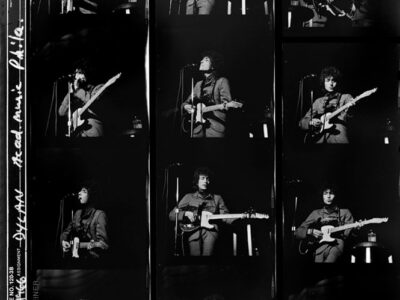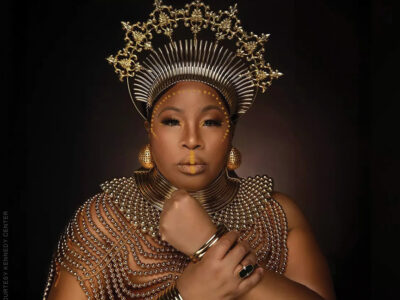
Lisa Golden C’89 and Dana Herman Covey C’88 both laugh when they talk about the circumstances in which they found themselves writing and rehearsing Momsense, their musical review about the trials and tribulations of new motherhood. They and two other young moms had nine children at various “stages of production”—from in-utero to toddler —so they had an abundance of raw material to work with. According to the show’s program notes, the mishaps included “two cases of chicken pox, a flood, colds, flu, children fighting over toys, children getting locked in a room (twice!), spilled liquids, runny noses, stinky diapers, dumped bowls of Cheerios, hysteria, and laughter.”
Momsense (www.momsenseshow.com) features choreographed routines and popular songs with original—and often hilarious—lyrics. ABBA’s “Mamma Mia” is transformed into “Mom, I Need Ya,” showing kids’ insatiable demands. The Beatles’ “Yesterday” becomes a semi-plaintive longing for a marital sex life pre-kids (“Yesterday/ my husband asked if we’d have sex one day”). The show is performed to raise money for charities throughout the tri-state area.
Golden (now mother of three) and Covey (mother of two) met through the theater community while at Penn. Covey, a theater-arts major, was a member of the all-women’s a cappella group Quaker Notes and helped found the improvisation group Without a Net. She was also the first Penn student to direct a show as her major thesis. Golden sang in public for the first time at Penn, as a member of Penn Players and Quadramics.
After graduation, both were unable to shake their love of the stage. Covey moved to Manhattan and created an improvisation group called Subject to Change. Golden performed in community theater in Stamford, Connecticut. Each married a Penn grad—Joe Covey C’88 and Matt Golden C’89—had children, and kept running into each other at various points along the way. (For the record, Lisa Golden was Lisa Goldin before she married a Golden.) Covey invited Golden and Amy Mandelbaum, a friend she’d made at a luncheon for new mothers, to a performance by Subject to Change. Mandelbaum and Golden shared a taxi home from the performance and realized that they, too, wanted an outlet for their theatrical creativity, despite the rigors of being new mothers. They called up Covey to discuss possible options.
“There was no way we’d force our friends and family to see us perform a night of torch songs,” laughs Covey. But what about a show about motherhood? Immediately lyrics popped into her head, such as “Spit-up on carpet and oatmeal on wicker/ Finding my new shoes all covered with stickers” to the tune of “My Favorite Things” from The Sound of Music. The mothers invited a fourth mom —Golden’s friend and neighbor, Harriet Berkowitz—to join the group, and with Joe Covey (who played in the jazz band at Penn) providing musical accompaniment on the piano, Momsense was born.
The show was originally performed two or three times in a small cabaret venue in midtown Manhattan—named, appropriately enough, Don’t Tell Mama. Momsense then took on a life of its own, as appreciative, still-laughing audience members would approach the moms afterwards, inviting them to perform in yet another venue in New York, New Jersey, or Connecticut.
“We lost money at first, since we were all paying babysitters while we performed!” says Covey. They decided to charge a low fee for full-scale productions. If they performed in a school, the school would keep half the profits and they would request that the school donate the other half of its proceeds to charities, preferably child-oriented charities such as the Pediatric Cancer Foundation. Charities hosting performances keep all proceeds.
Of course, the moms have the wholehearted support of their families. “Performing just enhances the whole experience of being a mother,” Golden said. “It is so great for me, and so great for my children to see their mother doing something so positive.”
The show has a homemade quality: costumes are spare, and the “set” consists of nothing more than a few stools for the performers and pictures of their children. The choreography, Covey herself will point out, is “not exactly Fosse.” But even that seems apropos.
“I don’t think anything that is about motherhood should be slick and polished,” notes Covey. The moms have performed in all sorts of circumstances, such as being kicked in the diaphragm repeatedly by an unborn child during a solo.
While the touchy issue of the work-life balance isn’t explored in the show, the moms say that the show gives them the chance to be fulfilled in ways they otherwise might not. “The irony is that since having my children, I’ve found my voice more than ever,” Covey says. “I’m performing more now than I did when it was my career! I found my voice because of having my kids.”
Golden and Covey point out that the show is always changing, with material being tweaked and added as the group encounters more experiences of motherhood.
“Just wait till adolescence,” laughs Covey. “That’ll be a whole new hour of material.”
—Jordana Horn Marinoff C’95 L’99




